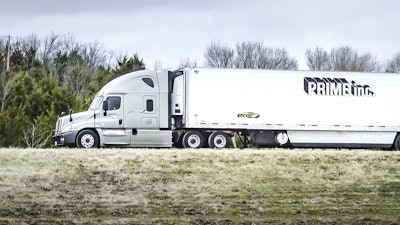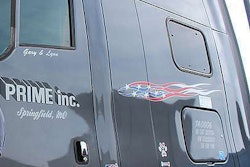
The case at hand involved owner-operator Dominic Oliveira and his former carrier New Prime, the legal name for the Springfield, Missouri-based Prime Inc., the 15th largest fleet in the country and one that has contracts with more than 5,000 independent contractors.
The key question before the nation’s high court is whether owner-operators are exempt from the Federal Arbitration Act, which addresses arbitration clauses within a wide range of contracts.
The Supreme Court’s decision will dictate if an arbitrator should decide whether an owner-operator is exempt from the FAA if he or she brings a lawsuit against a carrier or whether the courts should make that determination. That issue isn’t about whether the legal proceedings should be handled by an arbitrator or the courts, but rather who decides whether an arbitrator or courts should hear the case. It’s a nuanced question, but one that carries broad implications, says Braden Core, a partner at Scopelitis, Garvin, Light, Hanson & Feary. Core attended the hour-long session before the Supreme Court on Wednesday morning.
Oliveira and his legal team, who won their case against New Prime in the U.S. Court of Appeals for the First Circuit, argue that he is exempt from arbitration under the FAA and therefore his lawsuit should be taken up by the courts. New Prime argues otherwise, saying his contract stipulates that his original lawsuit against the company, which argues he was misclassified as an independent contractor, must be heard in arbitration because the exemption from the FAA only extends to “contracts of employment.”
Legal questions surrounding arbitration clauses have come before the Supreme Court numerous times, Core says, “but the trucking industry faces a unique challenge in this space,” due to the “contracts of employment” exemption afforded by the FAA. This case comes at a particularly tumultuous time, due to the industry-wide use of independent contractors and the legal debate in courts and legislatures over the meaning of that work status.
The case before the Supreme Court will decide just that: Whether owner-operators have “contracts of employment” with their carriers. If they do, they would be exempt from the FAA, as owner-operator Oliveira argues. If the Court decides they do not have contracts of employment, arbitration clauses within independent contractor agreements would be upheld.
“A driver is pretty clearly a ‘transportation worker,’ so all drivers in the country are going to meet that test, generally speaking,” said Core. “But what does it mean to have a contract of employment?” Company drivers fit that language, he says, “but does that phrase encompass owner-operators? There’s a dispute over that.”
The ramifications of the decision
The Supreme Court’s ruling is unlikely to say anything about the merits of any lawsuit brought against a carrier by an independent contractor. Instead, the case is simply about which authority — an arbitrator or the court — should determine whether an owner-operator’s contract with a carrier constitutes a “contract of employment,” and whether owner-operators are exempt, either in all cases or based on certain criteria.
Should the Court rule in favor of Oliveira, the justices would effectively be ruling that courts should determine whether an arbitration clause is valid in each lawsuit brought by an owner-operator against a carrier. If New Prime prevails, that decision would be up to arbitrators.
In the past, the four conservative-leaning justices on the court have been more likely to make “pro-business” decisions, says Core, and so were expected to side with New Prime. The four more-liberal justices were likely to side with Oliveira, he says.
But during the oral argument, two of the conservative-leaning justices, Chief Justice John Roberts and Justice Neil Gorsuch, “seemed sympathetic to [the] argument” made by Oliveira, says Core. Both sought to determine what lawmakers intended by the language within the FAA when it was enacted in 1926, a time when work-status distinctions were not as politically charged or frequently litigated. Roberts’ and Gorsuch’s decision on the issue are pivotal in the case’s outcome.
Core said the justices questioned the arguments of New Prime’s legal team more than they did Oliveira’s.
A decision is expected in the case in early 2019. Given that the suit is being heard by an eight-justice bench, it could result in a tie, which would leave the 1st Circuit’s decision in place, but only for the states under its purview — Maine, Massachusetts, New Hampshire, and Rhode Island.











